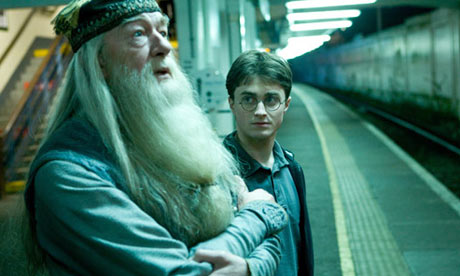Scent.
For some reasons unclear to
me, "Perfume: The Story of a Murderer" has never really piqued my
interest before. Despite the fact that the visually innovative Tom Tykwer is at
the directorial helm, my inclination to watch this film is quite lukewarm at
best mainly because, well, I just don't know why. But seeing the film in all
its glorious bizarreness and vivid peculiarity after all of those apathetic
years, "Perfume: The Story of a Murderer" has turned out to be quite
an exhilarating cinematic surprise.
Later, I then found out that
the novel on which the film was adapted from is a personal favorite of Kurt
Cobain (because he was able to identify with Jean-Baptiste Grenouille's
outsider mentality), which naturally leaves me even more intrigued to read it.
After all, nothing beats a dose of literary alienation every now and then.
Starring Ben Whishaw as
Jean-Baptiste Grenouille, a man born in a most conducive environment of rotten
fishes and market filth who has since mastered an almost superhuman attention
to scent, the film starts out in a fashion reminiscent of Danny DeVito's
underrated film adaptation of Roald Dahl's "Matilda." Although on the
opposite sides of the spectrum in terms of tone, atmosphere and character
development, both films have captured the elusive beauty of introductory
storytelling with a sort of effortless vibe, enhanced, of course, by two great
narrative voices: the former being Danny DeVito's very own, and the latter
being John Hurt's monastic yet commanding tenor. But before I get carried away
by my comparison of a grotesquely obsessive tale to a heart-warming children's
story, I'll just stop right there.
At the time (2006) considered
as the most expensive German film ever made, that fact is very evident in how
the film was visually conveyed. By maintaining the architectural grace of 18th
century Paris yet at the same time ornamenting it with the mud, dirt and decay
caused by sheer overpopulation, Tom Tykwer, known for his audacious visuals (Remember
"Run Lola Run?"), has convincingly turned Paris into the sort of city
Charles Dickens' characters could have easily lived their respective plights
on. But for Grenouille the aspiring master perfumer and scent savant, played
with starry-eyed perfection by Ben Whishaw, Paris, abundantly stinky and all,
is nothing but olfactory practice.
Despite his less than trivial
birth, Grenouille knows that he is bound for something more transcendentally important,
so with his grandiose ambitions intact, he then sets his eyes, err, nose, for
something infinitely bigger than just merely creating a pedestrian perfume: and
that is to create a scent made entirely out of natural, human fragrance. And
how can he do that, you may ask? Well, watching this great film on your own to
find out definitely won't hurt.
With great veteran talents
(Dustin Hoffman and Alan Rickman) leading the way, "Perfume: The Story of
a Murderer" turns out to be more than just a visual feast. Although
Hoffman and Rickman's performances may slightly be criticized mainly because of
the fact that they haven't tried hard enough to completely disappear into their
roles (Hoffman quite labors on the Italian accent; Alan Rickman is just too
Judge Turpin), the story's twisted yet serene soul more than makes up for the
convincing yet fleeting performances, especially when Grenouille, the
emotionally lost perfumer himself, slowly tunes up the band for the shocking
final crescendo that will surely part the viewers like the Red Sea.
Suffice it to say,
"Perfume: The Story of a Murderer" has never quite reached the
relative popularity of the Patrick Süskind novel, but still, for someone who
believes that film adaptations should be judged separately from their source
materials, I think that this one should have received an infinitely more
favorable reception. But for the sake of discourse, aren't you curious of what
Kubrick may have done with this one? Or what Polanski may have added to it? Or
what Scorsese may have changed? But then again, despite of those mammoth cinematic
names that were, at one point or another, either attached or has shown interest
to direct this film (add Ridley Scott and Milos Forman there), I still believe
that this Tykwer version is enough. Like Grenouille's 'human' perfume itself,
"Perfume: The Story of a Murderer" is a hypnotic creation that exudes
a kind of flawed beauty so haunting and unique that you have no other choice but
be willingly spellbound by it.
FINAL RATING







